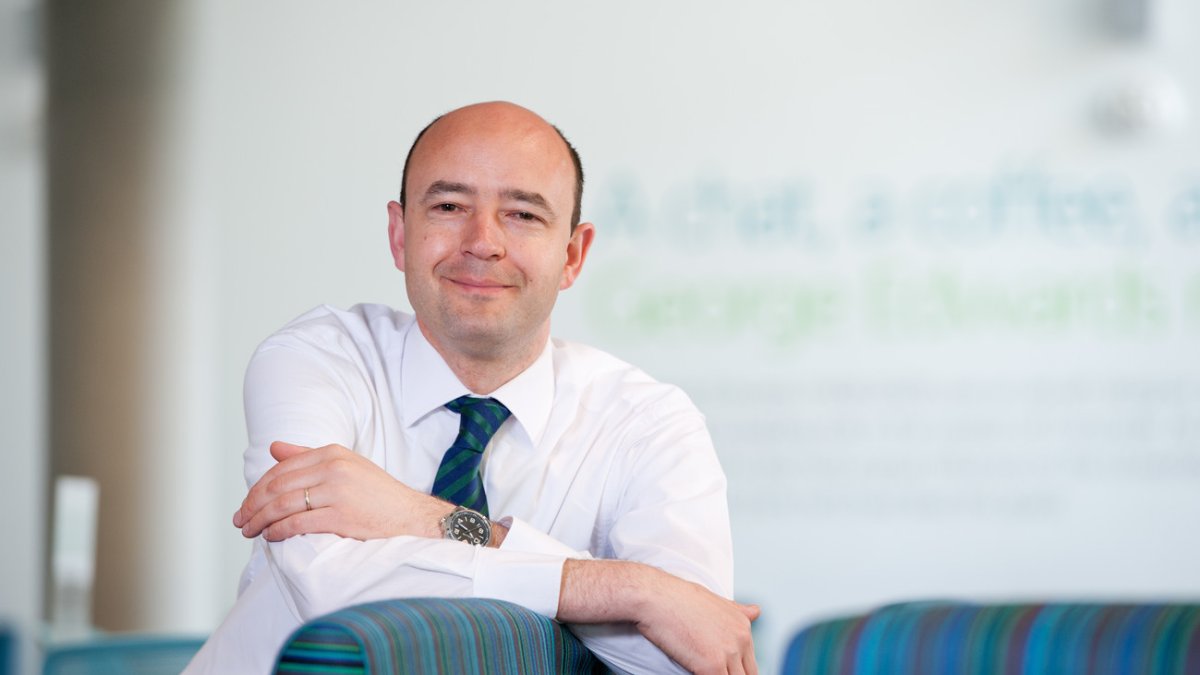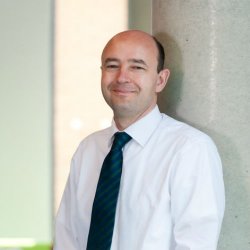Meet the academic: Professor Roberto La Ragione
Professor Roberto La Ragione, Head of the School of Biosciences and Medicine and Professor of Veterinary Microbiology and Pathology, shares how he became a veterinary microbiologist and what excites him about his current role.

Professor Roberto La Ragione, Head of the School of Biosciences and Medicine and Professor of Veterinary Microbiology and Pathology
Please could you introduce yourself?
I am currently Head of the School of Biosciences and Medicine and Professor of Veterinary Microbiology and Pathology in the School of Veterinary Medicine. I have a keen interest in infectious diseases that spread both between animals and from animals to humans. I am a strong advocate for improving antibiotic stewardship in veterinary medicine.
Alongside my 'day job', I am also Chair of the Royal College of Pathologists Veterinary Pathology Speciality Advisory Committee; Chair of Trustees for Humanimal Trust, a member of the Animal and Plant Health Agency Science Advisory Board and the Houghton Trust. I was previously President of the Med-Vet-Net Association and the Veterinary Research Club.
Why did you become a veterinary microbiologist?
While studying for my undergraduate degree, I developed a passion for infectious disease and pathology in animals and specifically zoonoses (diseases that can be transmitted from animals to humans and vice versa). During my MSc in Veterinary Microbiology, I recognised that I could make a significant difference to animal and human health and welfare through studying how microorganisms cause disease.
How did you become a veterinary microbiologist?
In the third year of my undergraduate degree, I completed a research project on infectious diseases and that inspired me to work in the field. After graduating, I went on to study at the Royal Veterinary College (RVC) and obtained an MSc in Veterinary Microbiology, which led to a position at the Veterinary Laboratories Agency (VLA), working for the Department for Environment, Food and Rural Affairs (Defra). I was fortunate that this position included a veterinary microbiology PhD scholarship in collaboration with Royal Holloway, University of London and industry. My PhD focused on understanding how E. coli causes infections in poultry in order to develop novel vaccines. Defra provided me with a fantastic platform to develop my scientific career as a veterinary microbiologist and a clear understanding of how fundamental research can be developed into practical applications and used to inform policy.
Once you qualified, where did your career take you and were there any highlight moments?
After completing my PhD, I took a postdoctoral research position at Royal Holloway, University of London, working in collaboration with the Veterinary Laboratories Agency (VLA, Defra) and industry as a Senior Veterinary Scientist. In 2001, I moved to the VLA full time and in 2005 I was appointed Head of Pathogenesis and control at what is now the Animal and Plant Health Agency. This allowed me to further develop my interest in veterinary microbiology and pathology, specifically in the area of novel control strategies and antimicrobial resistance.
In 2009, I joined the University of Surrey as a Senior Lecturer in Veterinary Microbiology to develop the BSc Veterinary Biosciences and MSc Veterinary Microbiology programmes. In 2010 I was appointed Professor of Veterinary Microbiology and Pathology and in 2012 Associate Dean for Veterinary Strategy in the new School of Veterinary Medicine at the University of Surrey. I later moved to the University full time to concentrate on the development of the School of Veterinary Medicine and my research group.
In 2014, I established the Surrey Veterinary Pathology Centre and was the Director until 2020. I was the Head of the Department of Pathology and Infectious Diseases and Deputy Head of the School of Veterinary Medicine at the University of Surrey until 2021. I am currently Professor of Veterinary Microbiology and Pathology in the School of Veterinary Medicine and Head of the School of Biosciences and Medicine.
I am a Fellow of the Royal Society for Biology and the Institute for Biomedical Science, and a chartered biologist and scientist. I obtained Fellowship of the Royal College of Pathologists in 2010 and was appointed as an Associate member of the European College of Veterinary Microbiology in 2020. In 2020 I was awarded Honorary Associateship of the Royal College of Veterinary Surgeons.
How and why did you become an academic?
While still employed at Defra, I lectured at the University of Surrey, the RVC, London School of Hygiene and Tropical Medicine and Royal Holloway and found I thoroughly enjoyed teaching and the environment of a university campus. I also found that academia provided a fantastic opportunity for interdisciplinary research.
What excites you most about your current role?
In my current role as Head of the School of Biosciences and Medicine, I am able to oversee research and teaching across a number of scientific disciplines including veterinary science, nutrition, microbiology, biochemistry, chronobiology, sports science and oncology. During my career I have been fortunate to work with a number of hugely inspirational mentors, and this has helped shape my career. The support I received has made me passionate about supporting scientific career pathways, and I really want to develop the next generation of veterinary microbiologists!
What is your specific area of expertise, and why are you passionate about it?
My current research focuses on the transmission of antimicrobial resistance and the pathogenesis of foodborne pathogens, with a particular interest in the development of rapid diagnostics and intervention strategies, including vaccination and pre and probiotics for the control of bacterial pathogens in animals. My work has included the development of the highly successful PoulVacE vaccine (an E. coli vaccine for poultry) and a number of rapid diagnostic tests for bacterial and viral pathogens.
Is there a specific memory of your time at Surrey (so far) which stands out for you?
Yes, the opening of the School of Veterinary Medicine by HM the Queen and the late HRH Prince Philip in 2015.
Her Majesty The Queen opened the University of Surrey’s new School of Veterinary Medicine in 2015

